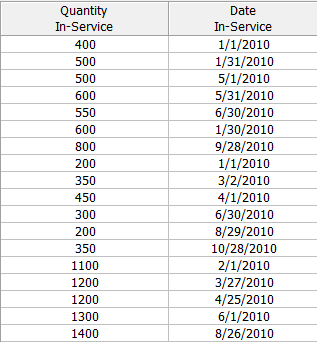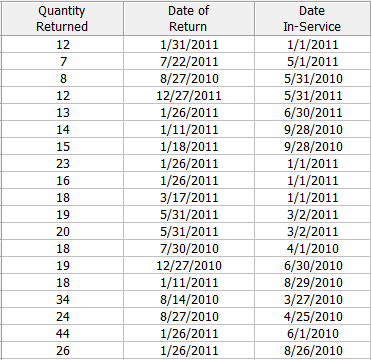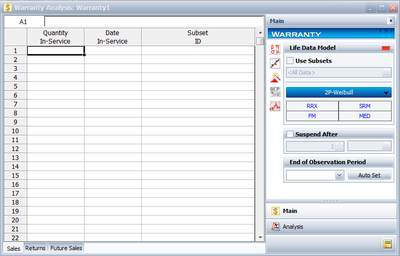Template:Dates of failure format: Difference between revisions
Jump to navigation
Jump to search
Quality In-Service Data
Quantity Returned Data
(Created page with '====Dates of Failure Format==== thumb|center|400px| Another common way for reporting field information is to enter a date and quantity o…') |
|||
| Line 1: | Line 1: | ||
====Dates of Failure Format==== | ====Dates of Failure Format==== | ||
Another common way for reporting field information is to enter a date and quantity of sales or shipments, Quantity In-Service Data, and the date and quantity of returns, Quantity Returned Data, as illustrated in the following tables. | Another common way for reporting field information is to enter a date and quantity of sales or shipments, Quantity In-Service Data, and the date and quantity of returns, Quantity Returned Data, as illustrated in the following tables. | ||
Revision as of 21:19, 21 February 2012
Dates of Failure Format
Another common way for reporting field information is to enter a date and quantity of sales or shipments, Quantity In-Service Data, and the date and quantity of returns, Quantity Returned Data, as illustrated in the following tables.
Note that in order to identify which lot the unit comes from, a failure is identified by a return date and the date of when it was put in service. The date that the unit went into service is then associated with the lot going into service during that time period. Lots can be used with the optional ID column which is covered in the sections that follow.
In Weibull++ this window is as shown next:
[math]\displaystyle{ }[/math]


